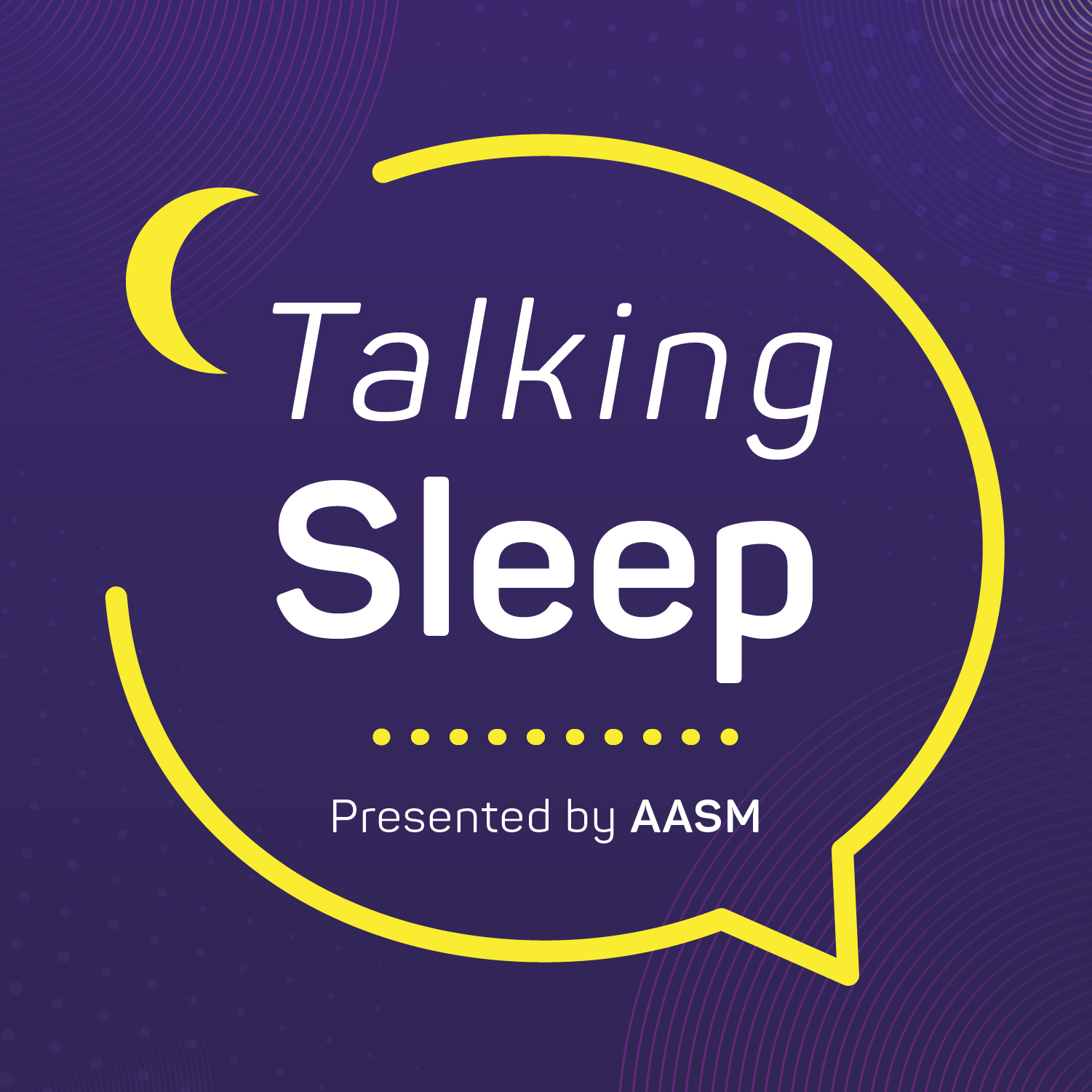

Talking Sleep
AASM
The vast field of sleep medicine is always evolving. Listen to Talking Sleep, a podcast of the American Academy of Sleep Medicine (AASM), to keep up on the latest developments in clinical sleep medicine and sleep disorders. Our host, Dr. Seema Khosla, medical director of the North Dakota Center for Sleep in Fargo, will take an in-depth look at issues impacting the diagnosis and treatment of sleep disorders. Episodes will feature conversations with clinicians, researchers, sleep team members and other health care experts working to help us sleep well so we can live well.
Episodes
Mentioned books

Oct 11, 2024 • 47min
A new era of AASM accreditation
The AASM is introducing a new service-based accreditation model and updated Standards for Accreditation, which will take effect in January 2025. Based on feedback from members and accredited programs, this accreditation model provides greater flexibility to accommodate all practice types, making it easier to manage, add, and remove accredited services. Changes to the Standards for Accreditation were also made to remove barriers and promote administrative and operational efficiencies in sleep practice management. In this episode, AASM Accreditation Committee Chair Dr. Fady Jamous and AASM Director of Accreditation Ray Anthonijsz help explain some upcoming changes to AASM accreditation programs.

Sep 27, 2024 • 53min
Behavioral therapy for sleep disorders: CBT-I and beyond
Dr. Richard Blackburn, a sleep psychologist at Nystrom & Associates, is on a mission to boost access to behavioral therapies for sleep disorders. He discusses the challenges of training clinicians in CBT-I and the importance of telemedicine. They dive into practical strategies for billing and providing care across various health providers. Blackburn also outlines modifications for special populations like children and veterans. Plus, he explores innovative treatments like imagery rehearsal therapy for nightmares and discusses integrating behavioral strategies in sleep clinics.

Sep 13, 2024 • 50min
Sleep-related anxiety and new onset insomnia
Dr. Leisha Cuddihy, a medical professional focused on anxiety and insomnia, joins Dr. Sara Nowakowski, an expert in innovative treatments, and Dr. Micha, a researcher on anxiety patterns. They dive into the rise of sleep-related anxiety, especially post-COVID-19, emphasizing the debilitating cycle of panic. The discussion introduces Acceptance and Commitment Therapy (ACT) as a strategy to shift perspectives on sleep disturbances. The guests advocate for a relaxed approach to sleep management and explore the complexities of treating insomnia effectively.

Aug 30, 2024 • 50min
AI SWOT Analysis
AI is popping up everywhere — when we open a PDF, use an AI scribe, or look something up with Chat GPT. We all interface with AI daily and may not even realize it. This can become very complex and somewhat mysterious. How can we use AI in a sleep medicine practice? Is it trustworthy? Will we all be replaced by AI someday? The AASM has an AI committee tasked with these questions. In this episode, we talk with committee members Dr. Margarita Oks and Matt Anastasi about a SWOT analysis on the use of AI-enabled technology in sleep medicine.

Aug 16, 2024 • 55min
Silent and sleepy: The use of wake-promoting medications in well-treated OSA
Excessive daytime sleepiness is a significant problem for many people who have obstructive sleep apnea (OSA), and persistent sleepiness occurs in some patients despite effective treatment of OSA. Dr. Kingman Strohl and Dr. Lucas Donovan discuss this common clinical scenario, provide tips for the evaluation of persistent sleepiness, and talk about the wake-promoting medications that are available as treatment options.

Aug 2, 2024 • 30min
Cutting Through the Haze - the Use of Cannabis for Sleep and Sleep Apnea
There are currently 40 states with legalized medical marijuana. Twenty-four of these also have legalized recreational marijuana. Many people report using cannabis to help them to initiate and maintain sleep. Is there any data to support this? Is cannabis safer than prescription sleep aids? What should we know about cannabis and sleep? Dr. Bhanu Prakash Kolla discusses the impact of cannabis on sleep and its potential use to treat sleep disorders.

6 snips
Jul 19, 2024 • 41min
Sleep technology for insomnia
Drs. Shalini Paruthi and Sachin Shah discuss the latest sleep technology for insomnia, focusing on digital cognitive behavioral therapy apps, NIRRibles for sleep tracking, non-contact monitoring devices, vibrational sound pillows, and transcranial electrical stimulation. They highlight personalized treatment options, patient-driven discussions, and the importance of informed decision-making in utilizing sleep technology for insomnia treatment.

Jul 5, 2024 • 40min
Key Considerations When Implementing an RPM program
Remote patient monitoring codes have been active for a number of years. These have largely been used to monitor blood glucose levels via a continuous glucose monitor or to adjust heart failure medications via a connected digital scale. Dr. Charles Bae and Dr. Gabriela de Bruin discuss whether sleep medicine professionals should also use remote physiologic monitoring (RPM) and remote therapeutic monitoring (RTM) codes in the sleep clinic.

Jun 21, 2024 • 31min
Reimbursement and clinical use of actigraphy
The Actiwatch is a popular actigraphy device that is no longer sold or supported by Philips. Its discontinuation coincided with the launch of the AASM’s “Act on Actigraphy” campaign, which highlights the importance of actigraphy testing for sleep disorders and urges payers to reimburse health care professionals for this medical service. Dr. Paul Raymond, vice chair of the AASM Coding and Reimbursement Advisory Committee, discusses reimbursement for actigraphy, its clinical use, and current and future options for device selection.

May 31, 2024 • 50min
Hiding in plain sight: The importance of a SOREMP on PSG
Despite having more treatment options than ever before, narcolepsy remains significantly underdiagnosed. Is there a potential clue on the polysomnogram (PSG) that we are overlooking? Dr. Alyssa Cairns and her team are exploring the biophysiological phenotypes of sleep disorders, specifically central disorders of hypersomnolence. She discussed how she combed through half-a-million sleep records and looked at the predictive value of a sleep-onset REM period (SOREMP) on PSG for a future diagnosis of narcolepsy.


